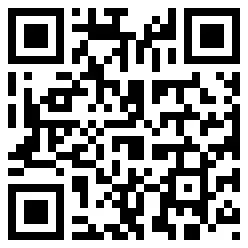Problem Statement
I'm looking at ways to ensure that business partners, or emails from trusted senders, never get quarantined; ....in other words prevent "ham being seen as spam". Ideally this would guarantee delivery even if the sender was marked as a spammer (...see blackhole list).
Since most email is going through cloud / multi-tenant / shared email providers that share the same IP space, it's likely that the reputation of many different businesses are affecting each other for better or worse. That is, spammers may benefit from being co-located on "good" tenants, and conversely the "good" tenants may be blacklisted if the spammer gets the IP space listed.
Current email whitelisting solutions requires special action by the recipient, and that database to be maintained on a MTA. But there are many instances where this isn't feasible or the right solution, such as when offline, at a trade show, or wherever a receiver wants to ensure delivery of a sent message without logging into a web portal or updating Outlook junk mail settings.
Proposed Design
If we modify the TO email address, but prepended with a special value, such a hash, (similar to how BATV works), the MTA / SPAM engine could patently ignore the message and accept it as-is. Here is what a message would look like:
// The sig below will only guarantee delivery
// for a sender of bill@microsoft.com
// to the account user@company.com
trust=xxxxxxxxxxxxxxxx=user@company.com
// The sig below will only guarantee delivery
// for a sender of alex@microsoft.com
// to the account user@company.com
trust=yyyyyyyyyyyyyyyy=user@company.com
The hash (defined as a HMAC) trust would be the first 80 bits from the function:
(SHA256(Key + Lowercase From + Lowercase To))
When the receiving MTA receives the message with the special address, it will be able to validate the HMAC quickly, and avoid any greylisting or other anti-spam techniques that might be applied.
Assume that either each user is given the salt for their own ability to distribute hashes, and a copy of each hash is available to the MTA for verification purposes.
Making it secure/spoof free
Since anyone could conceivably spoof the tuple of "FROM" and "TO" address above, I think it's a good die to combine this feature with anti-spoofing measures such as DKIM or SPF, which is best defined in the DMARC standard
Usage
For in-person, offline whitelisting
This idea is best fit for times when you meet someone at a trade conference, bar, or and want to make sure you receive messages from that person. You don't want any Anti Spam solution getting in the way from them receiving your email. You would enter in their email address into your generator to create the following address trust=yyyyyyyyyyyyyyyy=user@company.com

This two step process of generating the address could be automated in a variety of applications such as Facebook, LinkedIn, or Bump for iPhone.
For online- email whitelisting
In addition to setting the Reply-To: header, The MUA (email client) could insert a special X-header
X-WhitelistReplyAddress = trust=yyyyyyyyyyyyyyyy=user@company.com
Question
Is the "big picture" goal of this idea reasonable? (offline whitelisting, guaranteed delivery by MTAs, moving the location of the whitelist from the centralised mail server to the actual senders)
Is there any similar, existing proposed RFC that whitelists trusted sender-recipient pairs this for email?
What other techniques exist to whitelist sender-receiver pairs in email?
What cryptographic components are appropriate for this solution? Is hashing the right way to go?